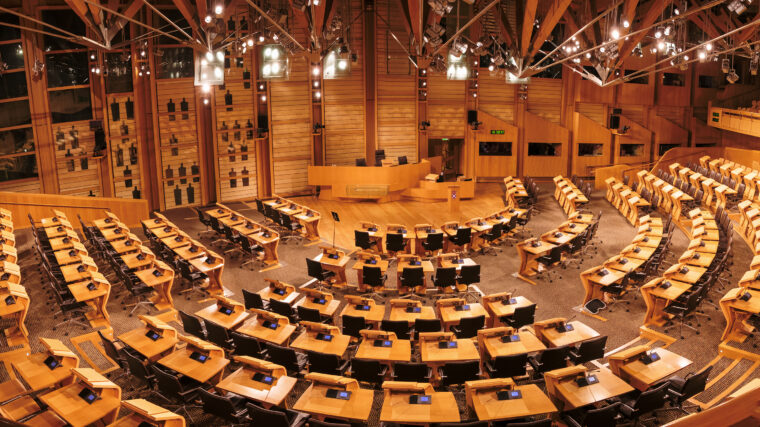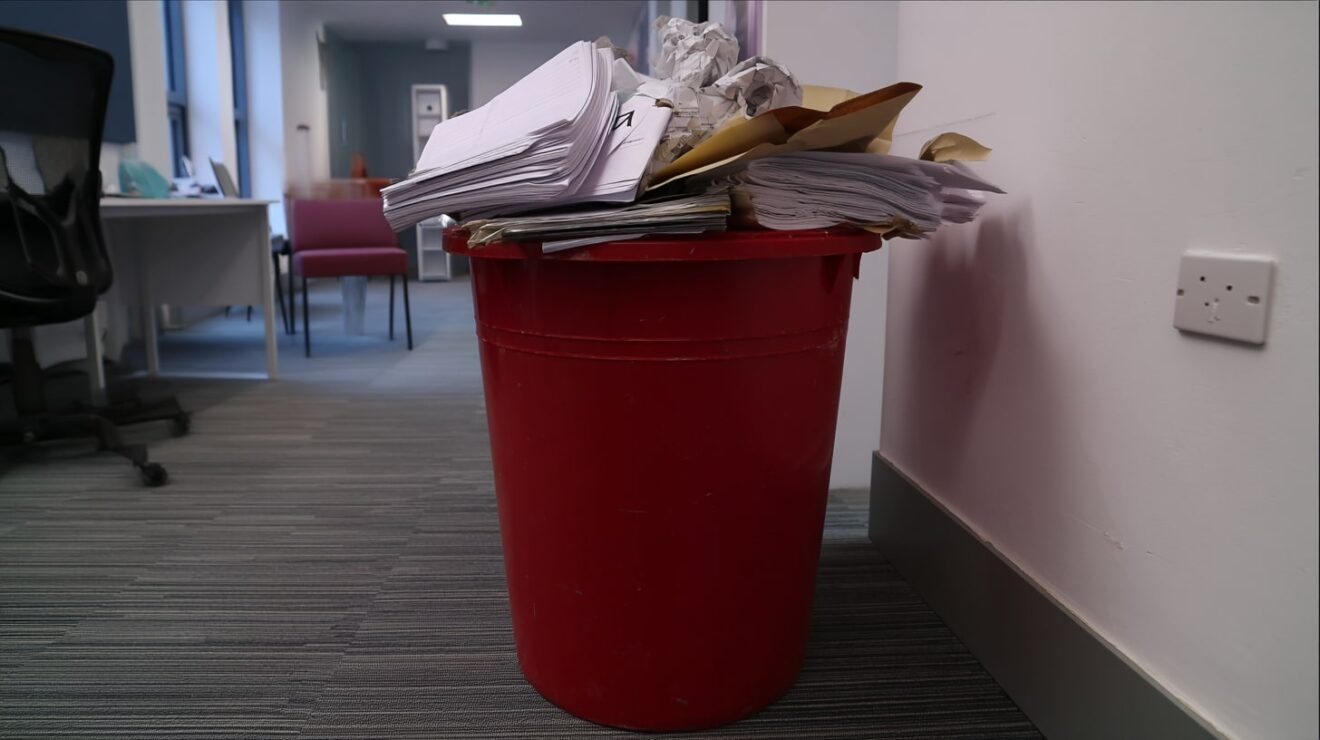In the final throes of the General Election campaign, higher education tuition fees have taken centre stage once again. The Labour Party has extrapolated the Conservatives spending (or cutting) plans and estimated that under previously-announced assumptions, fees would need to rise to £11,500 to cover a shortfall in funding to universities.
It’s a fairly standard campaigning tactic and one that is used across different areas of policy. The amazing thing about this intervention though was that both the Conservatives and Lib Dems refused to rule out such a rise. Nick Clegg wouldn’t rule it out when pressed and William Hague similarly left the door open to fees going up further.
It should have been incredibly easy for either to rule out this new higher cap, shutting down the line of attack. The fact they couldn’t indicates that Labour may have successfully uncovered a real truth about current Conservative and Lib Dem thinking: that they are minded to raise tuition fees again in their efforts to cut BIS and other unprotected departments to meet their deficit reduction targets.
Tuition fees have been a lightening rod issue for the Liberal Democrats – it is cited time and again on the doorstep as the reason previous Lib Dem voters are now abandoning the party. It has come to represent the wider feeling that the Lib Dems essentially lied to voters before the last election and then sold out for a few ministerial Jags. This narrative is repeated in the press and has become one of the collective truths of the current political landscape – born of some reality, and bolstered by the hive mind of the commentariat. And it will wipe off several points of Lib Dem support on Thursday and could even see Nick Clegg lose his seat in the early hours of Friday morning. The odd thing about this powerful narrative is that despite having higher education fees at its core, it actually has very little to do with universities, how they should be funded and what students should contribute.
Because there’s something really weird going on. The tuition fee cap is taking on a new mystical, almost existential status. Given the vagaries of the HE funding system, it always had a fairly tenuous link to realities of HE finance anyway, but it is now starting to float away to a sort of political netherworld. It’s another dimension that’s all around us, on our airwaves and always at the edge of consciousness, but where it is impossible to grab on to concrete ideas or facts. Political narrative trumping all real policy.
Just recently we had £3,000 then £9,000 after Browne which was set to fit with the Coalition’s narrative about how and why the deficit should be cut. Then buying in to the narrative about the Lib Dem betrayal on fees, Ed Miliband announced his policy of a £6,000 cap. Don’t forget we also had £16,000 mooted by Oxford last year. Now the number on everyone’s lips is £11,500. None of these numbers are rooted in any truth about how universities should be funded, nor how students or taxpayers should contribute to higher education. They are political realities and they are becoming harder to hold on to every day as they float away to a policy-free dimension.
For universities, this is highly unsettling. Planning and delivering higher education across our system and in institutions is a complicated, almost monumental task. The funding envelope needed to do it is not everything, but it matters a great deal. And the headline numbers are ever-slipping away from their control and simultaneously losing their meaning in a way that can not be helpful. It is widening the gulf between students and universities, students and government, taxpayers and universities, taxpayers and government. No one really knows where they stand in relation to eachother anymore and even the policy wonks are having a hard time separating the signal from the noise.
One thing we know for sure is that there is £5,500 between £6,000 and £11,500 and increasing the cap would mean a further burden of debt on young people. Worse still, unless more stringent repayment terms are set, it would likely mean the system would also lose out. So you can be sure a government introducing a higher cap would simultaneously do something unpleasant to the way that graduates repay their debt.
If there is no hope for the sector in reclaiming the fee cap as their own, then counter-intuitively it may now make sense to give it a more permanent and visible political status. A sure-fire way to bring it all back down to earth would be to link fees and repayment rates to the Finance Bill. So every Budget day, the Chancellor of the Exchequer would have to get to his feet before Parliament and the nation and tell us how he is going to help struggling graduates next year, and how he is going to invest in the universities that he is so proud of.
A risky game, for sure. But it would make this important issue real again. Perhaps too real – it is certainly in the interests of some for fees to remain in political la la land, so that deals can be done behind closed doors – the way it has always been done to protect those same interests. But higher education matters to everyone in some way, and how it is funded and what students and graduates contribute, is something that all of society has a stake in. And as we have seen over the past decade, culminating with this General Election campaign, it is also something that a wide range of people have very strong feelings about.
Bringing higher education to the centre of the political and economic debate more formally would also give greater accountability for politicians that do want to tinker with HE finance. They would have to explain before Parliament why they think it should be tougher for graduates to repay their loans, making such a move less likely. And both universities and students would be able to lobby coherently and powerfully, building alliances with other parts of society affected by the government’s budget to ensure a balanced settlement that recognises the needs of students, graduates and universities in their rightful context: a mission of great national import.
It would surely be preferable to the current situation that leads political parties to say weird things about the fee cap at irregular times, wiping meaning and purpose from the concept every time they do, creating uncertainty and confusion in the sector and generating hostility amongst those concerned about fees. A predictable and highly visible annual marker on Budget day could provide the sector with more clarity than the permanent uncertainty generated by this vague dance across political truth that never seems to take us anywhere real, and gives the sector less control of its destiny every single day.











